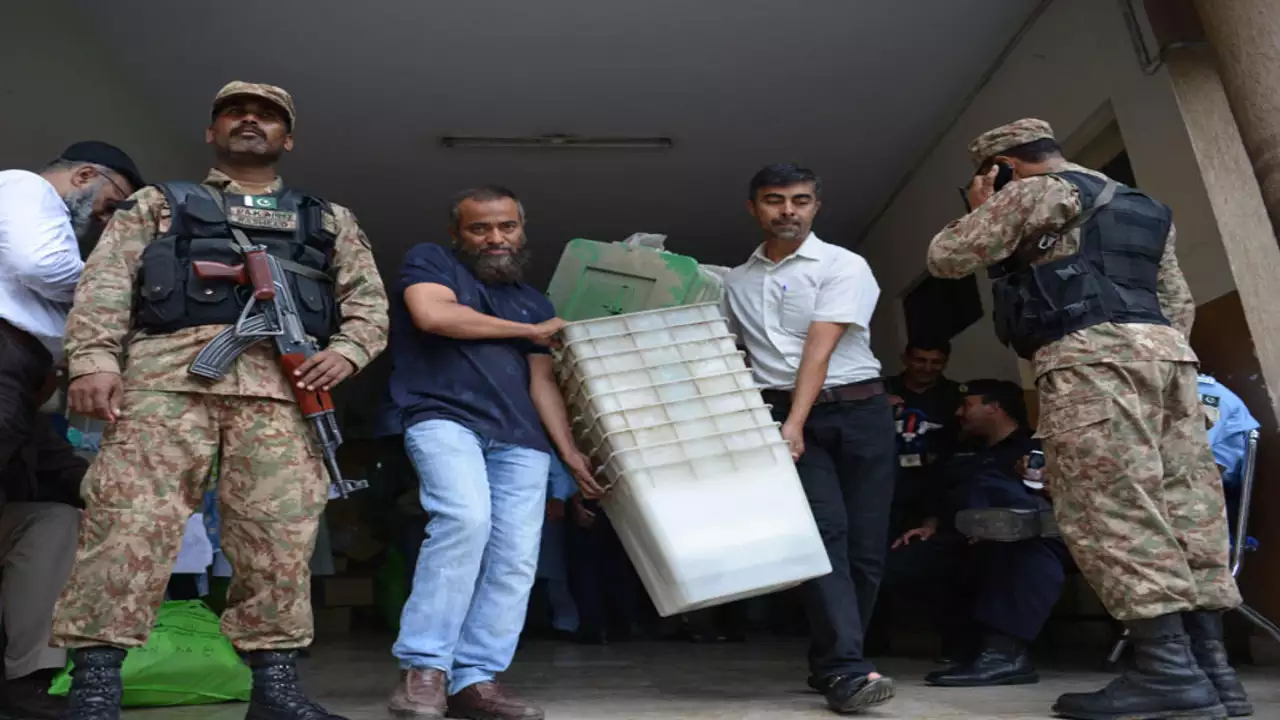Naveed Hussain Ch
Security of election campaign and voting day is crucial for ensuring the legitimacy, credibility, and integrity of the electoral process. Elections are a contest for legitimate power that can be described as a non-violent competition, fought within a political forum. However, elections can also face various threats from internal and external actors, such as cyberattacks, influence campaigns, intimidation, violence, and insider attacks. These threats can undermine the confidence and trust of the voters, candidates, and election officials in the electoral system, and potentially affect the outcome or the acceptance of the results.
Therefore, it is important to adopt effective measures to secure the election campaign and voting day, as well as the pre- and post-election phases. Some of the measures that can be taken for the security of the election processes are:
- Implementing an enterprise-wide software and patch management program to reduce the likelihood of cyberattacks and malware infections on the election systems. This includes establishing an inventory list of the software and hardware used in the election infrastructure, applying security updates and patches regularly, and using application allowlisting to prevent unauthorized software from running.
- Retaining and adequately securing logs from both network devices and local hosts to support triage and remediation of cybersecurity events. This includes setting up centralized log management, encrypting and backing up the logs, and monitoring and analyzing the logs for anomalies and indicators of compromise.
- Treating election systems as critical infrastructure and establishing a coordinated and collaborative approach among federal, state, local, tribal, and territorial governments, as well as election stakeholders and private sector partners. This includes sharing threat information and best practices, conducting joint risk assessments and audits, and providing technical assistance and resources.
- Ensuring equitable and rights-based security for all participants in the election, including voters, candidates, election workers, observers, and media. This includes respecting the freedom of speech and association, providing reasonable and proportionate responses to actions, and avoiding any perception of bias or favoritism by the security forces.
- Anticipating and pre-empting security risks, mitigating their impact or probability of occurrence, and preparing contingency plans for possible scenarios. This includes conducting threat analysis and vulnerability assessment, developing security protocols and standard operating procedures, and training and equipping the security personnel.
- Implementing special security measures or arrangements during the election period, such as deploying additional security forces, imposing curfews or restrictions, establishing checkpoints or cordons, and banning or confiscating weapons. These measures should be based on the specific context and needs of the election, and should be communicated to the public in a transparent and timely manner.
These are some of the measures that can be taken for the security of the election processes. However, there is no single model or solution that is universally applicable to all countries or situations. Each election is unique and requires a tailored and flexible approach that considers the social, political, cultural, and historical factors of the people and the country. The ultimate goal of securing the election processes is to ensure that the will of the people is expressed and respected in a peaceful and democratic manner.
As the elections are approaching, there are legitimate worries about the security of the candidates who are campaigning and the public who are involved in the electoral activities. The recent data on terrorism-related incidents and the reports from KP security officials show a bleak situation in the province. However, senior law-enforcement officials think that the situation is still ‘under control’. Everything possible must be done to maintain that, or even make it better. It is undeniable that the institutions in charge of internal security have a tough job: it is their responsibility to ensure peace in spite of all difficulties. There have been several attempts to suggest that the elections should be delayed further because of the poor security situation. However, Pakistan’s law-enforcement and security agencies have the necessary skills and equipment to handle all challenges, and they will surely perform well if they get the required resources and support from the government. Elections are a normal event in any country. Asking for them to be postponed because some hostile forces might try to disrupt them seems more like a capitulation than a sensible decision by a self-respecting state.
The enemies of Pakistan have tried to impose themselves during critical times in its sociopolitical history. They must be taught once again that their evil plans do not control our lives. The 2008 elections were held despite the violence being much worse than what we are seeing now. Over the years, the violence reduced, thanks to the many sacrifices made by our courageous soldiers, police forces and other security personnel. As a result, the elections for 2013 and 2018 were held in better conditions. There is no doubt that terrorism-related incidents are increasing again, but we have overcome such hardships in the past and must decide to move forward once again. Of course, this will require all front-line security forces to be extra alert and be more active in finding and eliminating threats. But, given Pakistan’s extensive experience in conducting counterterrorism operations and achieving a high level of success in the war against terrorism, our security institutions are also much more prepared than they were in 2008. As long as they can keep their focus on domestic security, they are quite capable of defeating any hostile elements.
Please, subscribe to the YouTube channel of republicpolicy.com
















